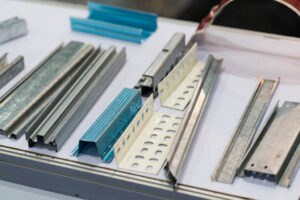CNC machining provides a high level of precision and accuracy in the production of various components. However, achieving this level of precision is not easy and it requires a well-structured quality control process that includes inspections at various stages of production.
In this article, we discuss the role of inspection in ensuring the accuracy of CNC machined parts.
The Importance of Inspection in CNC Machining
Inspection is a critical component of CNC machining as it helps ensure that the final product meets the required specifications and quality standards. Inspections are carried out at all stages of production, from the raw material stage to the finished product, to ensure that each part meets the required standards of precision and accuracy.
At the raw material stage, inspections are carried out to ensure that the materials used meet the required quality standards. This includes inspecting the material for defects such as cracks, inclusions and inclusions. Any flaws found in the material can affect the precision of the final product, therefore, they must be addressed before the machining process begins.
During machining, inspection is to check the accuracy of the machining process. This includes checking the dimensions of the part being machined, the surface finish and the overall quality of the part. Any deviations from the required specifications can be corrected at this stage to ensure that the final product meets the required standards.
After the machining process is complete, inspections are carried out to check the quality and precision of the final product. This includes checking the dimensions, surface finish and overall quality of the part. Any deficiencies or deviations from the required specifications can be corrected at this stage to ensure that the final product meets the required standards.
Types of Inspections in CNC Machining
A variety of inspection techniques are used in CNC machining. For example:
Visual Inspection: This is the most basic form of inspection and involves visually inspecting the part for any defects or deviations from required specifications.
Coordinate Measuring Machine (CMM): CMMs are used to accurately measure the dimensions of parts. CMMs use a probe that moves along the surface of a part to measure its dimensions. CMMs are very accurate and can measure parts with complex geometries.
Surface finish measurement: This involves measuring the surface finish of a part using specialized equipment. This is important because surface finish can affect a part’s functionality.
X-ray inspection: X-ray inspection is used to check inside a part for defects that may not be visible through visual inspection. This is especially important for parts used in critical applications such as aerospace and medical applications.
Ultrasonic Testing: Ultrasonic testing is used to detect defects in materials such as cracks and inclusions. This is important because these imperfections can affect the precision of the final product.
Check out the benefits in CNC machining
Inspection plays a vital role in ensuring the accuracy of CNC machined parts. Some benefits of inspections include:
Improve quality: Check to ensure that the final product meets the required specifications and quality standards, thereby improving the overall quality of the product.
Reduced costs: Inspection helps to identify defects and deviations from required specifications early in the production process, thereby reducing production costs.
Increased Efficiency: Inspections can help identify any issues in the production process, which can be addressed to increase the efficiency of the process.
In conclusion
Inspection is a critical component of CNC machining as it helps to ensure that the final product meets the required specifications and quality standards. By inspecting raw materials for defects and verifying dimensions, surface finish, and overall quality at various stages of production, any deviations from required specifications can be identified and corrected early on. This can lead to improved quality, reduced costs, and increased efficiency in the production process. Therefore, inspection is essential for ensuring that CNC machined parts are accurate and meet the required standards for their intended use.




